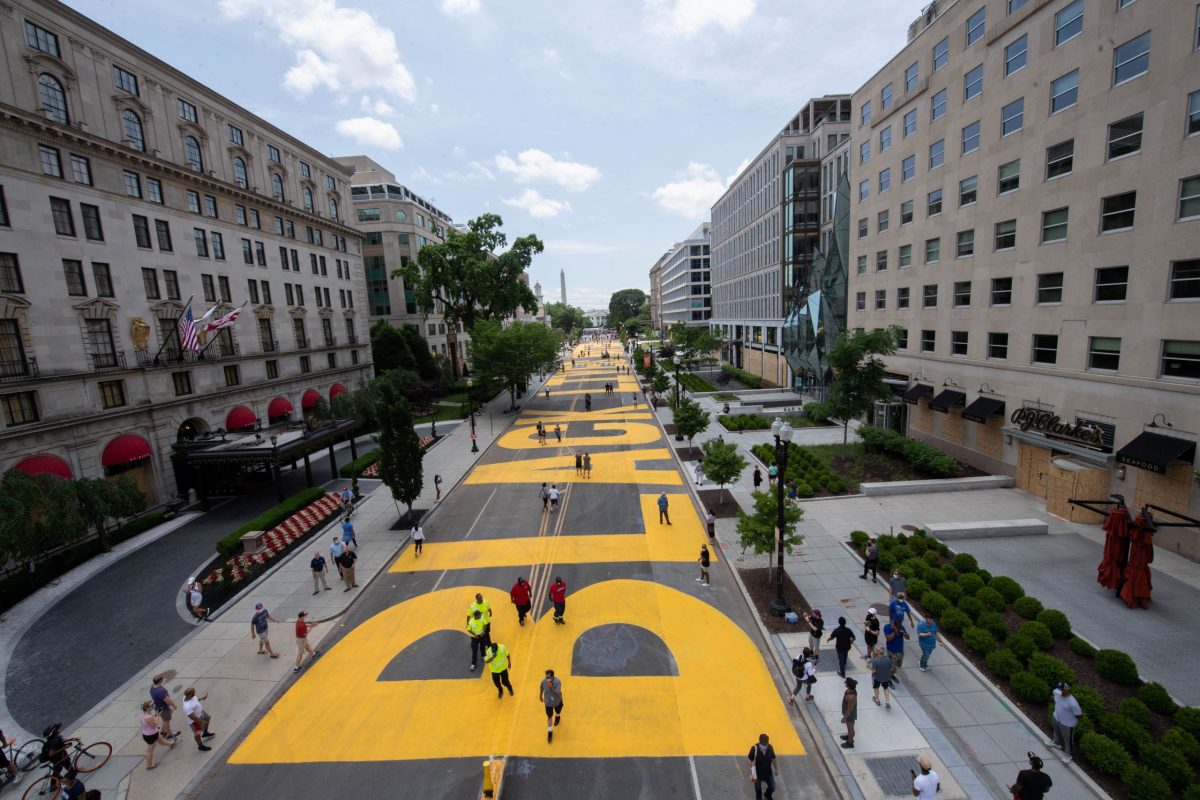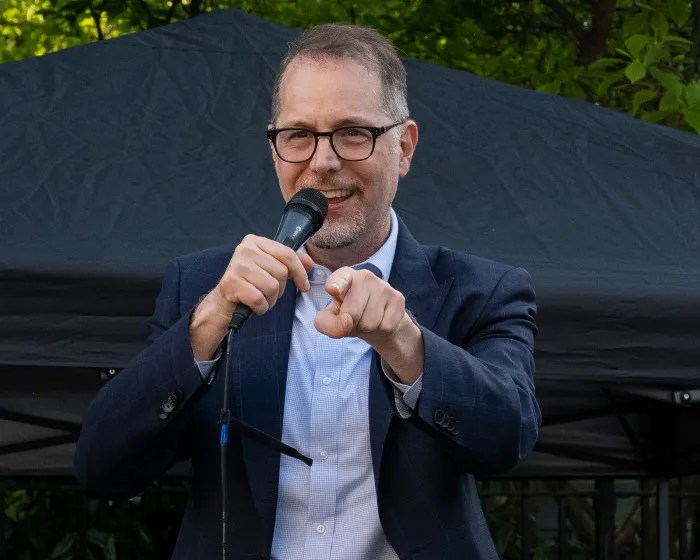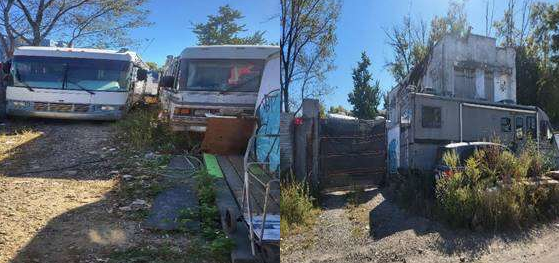BY LISA LAMBERT AND ALEXANDRA ALPER
Washington Mayor Muriel Bowser on Friday renamed a street in front of the White House “Black Lives Matter Plaza” and had the slogan painted in huge yellow letters on the roadway in an apparent rebuke of President Donald Trump’s militaristic response to U.S. protests over police brutality.
Bowser tweeted footage of the street painting on a section of 16th Street in the U.S. capital with a message to Breonna Taylor, a black woman killed by Louisville, Kentucky, police who has inspired nationwide protests along with George Floyd, a black man who died on May 25 in Minneapolis police custody.
“Breonna Taylor, on your birthday, let us stand with determination.,” Bowser wrote. “Determination to make America the land it ought to be.”
Bowser and Trump are at odds over the president’s use of federal law enforcement agencies and military police to break up a protest on Monday night so he could have a photo op outside a church near the White House.
“We want troops from out-of-state, out of Washington, D.C.,” Bowser said at a news conference on Thursday.
On Friday, the city also installed a street sign for Black Lives Matter Plaza at the intersection of H and 16th Streets, site of the St. John’s Episcopal Church where Trump, holding a Bible, stood for his photo op.
Using rollers and buckets of yellow paint, with brushes to finesse the edges of the letters, a group of people – men and women, of different races and ages, some wearing roller blades, some work boots – painted the street. Many were sweating under the warm sun.
Trump, buffeted by the economic blow of the coronavirus pandemic and protests, on Friday again said he had advised some state governors to call in the National Guard.
“Don’t be proud. Get the job done. You’ll end up doing much better in the end, calling the National Guard. Call me,” Trump said in remarks at the White House.
“You have to dominate the streets. You can’t let what’s happening, happen,” Trump said, echoing some of his previous remarks.
Nationwide protests, largely peaceful, have at times turned to vandalism, looting and clashes between police and protesters.
RACIAL TENSIONS
The Republican Trump, running for re-election on Nov. 3 against presumptive Democratic candidate Joe Biden, was cheered on Friday by an unexpected jump in U.S. employment in May. Millions of Americans have lost jobs while much of the country has been under lockdown because of the pandemic.
Trump suggested in his remarks that economic recovery would help ease racial tensions.
“What’s happened to our country and what you now see has been happening is the greatest thing that could happen for race relations, for the African-American community, for the Asian-American, for the Hispanic-American community, for women, for everything,” Trump said.
When pressed to outline his plans, Trump said: “Our country is so strong and that’s what my plan is, we’re going to have the strongest economy in the world.”
Trump – accused by critics, including his former Defense Secretary Jim Mattis, of dividing America – called for law enforcement to treat all people fairly and equally, regardless of race, gender, color or creed.
On Wednesday, after long refusing to explicitly criticize a sitting president, Mattis roundly denounced Trump for militarizing the U.S. response to civil unrest.
Protests, which waned overnight, have taken place in many cities including Atlanta, Denver, Detroit, Los Angeles, Minneapolis, New York and Washington. Protests were planned for Washington on Saturday, and memorial services were expected over several days with Floyd’s funeral planned for Tuesday.
A change in mood at most demonstrations reflected a determination voiced by many protesters and organizers to transform outrage over Floyd’s death into a renewed civil rights movement, seeking reforms to America’s criminal justice system.
“This is a very seismic moment, and someday I’m going to have a kid, and he or she or they are going to ask me what I did during the uprising of 2020, during the American spring,” said Nana Mensah, a writer in her 30s from Brooklyn.
She held a sign that read: “You’re lucky we just want equality and not revenge.”
Despite the improvement overall in Friday’s jobs report, unemployment among African Americans was higher in May than in April, a statistic that critics were certain to cite as underscoring racial disparities in American society.
The unemployment rate for African Americans is 3.5 percentage points higher than the national rate of 13.3%, while the rate for whites is 12.4%, nearly a full point below the national rate.
The new coronavirus has also killed African Americans at a higher rate than the U.S. population at large.
Asian Americans were another demographic group to experience rising unemployment in May, the government figures showed.





































